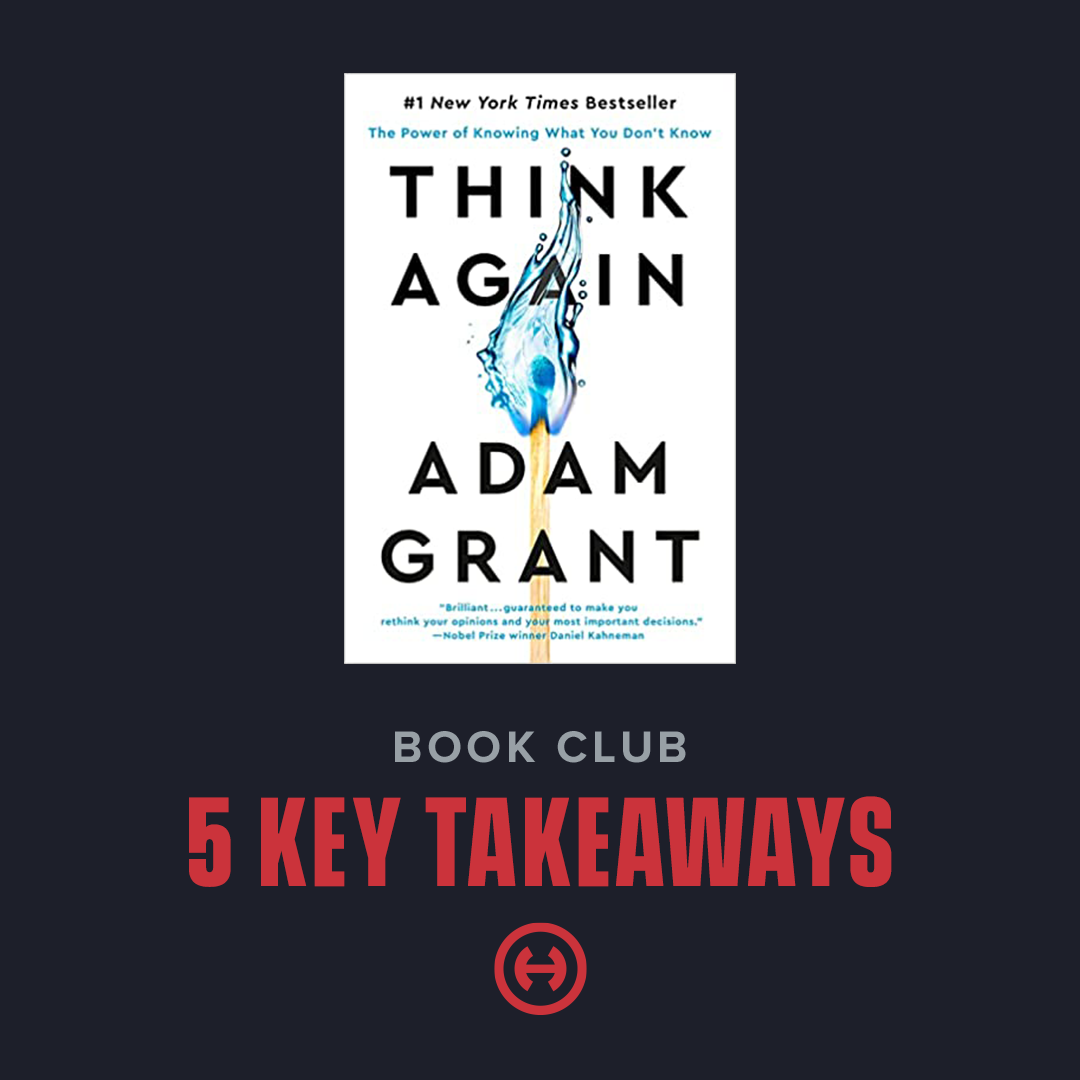At our latest agency book club, we discussed “Think Again” by Adam Grant. The book highlights tactics for building our individual and collective “rethinking” muscle – the practice of persistently questioning old assumptions and embracing new ideas and perspectives. Grant argues that keeping an open mind is a teachable skill, and notably, a skill that is critical to building learning cultures in the context of an increasingly divisive world.
If you’re curious about jumpstarting rethinking for yourself or your team, consider picking up a copy of the book here or at your favorite local bookstore. In the meantime, we’re sharing five tips from Adam to get you started:
- Think like a scientist. Scientific thinking requires being actively open-minded. That means searching for reasons why we might be wrong instead of reasons we must be right. When you form an opinion, resist the urge to preach or prosecute. Treat your emerging view as a hunch, test it with an experiment and re-evaluate based on new data.
- Embrace the joy of being wrong. Knowing what you don’t know is the first step in developing expertise. When you discover you’ve made a mistake, frame it as a sign that you’ve learned something new.
- Build a challenge network. We all need critics who challenge us. Productive disagreement is critical to individual growth, generating creativity and strengthening the work we do together. Identify your most thoughtful critics and invite them to question your thinking.
- Have more nuanced conversations. There are usually more than two sides to a story, right? In a professional setting, acknowledging competing views or conflicting data doesn’t sacrifice credibility – it’s an effective way to encourage curiosity. Seeing the shades of gray in a conversation can make us more open.
- Abandon “best” practices. People are more likely to rethink the way they work in learning cultures where curiosity is encouraged. When we prioritize “best” practices, it suggests a perfect solution is in place and does little to motivate new thinking. Instead of “best,” establish process accountability where all team members continually strive for “better” practices.
